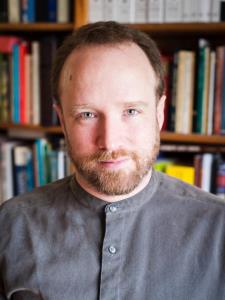
Bobby J. M. answered • 08/06/19
2-yrs Experirenced Tutor with BA in Theology, MA in Philosophy
This can get sticky. After all, how do we define a 'tradition'? Women's suffrage, for example, on the grand scale of history, is not 'traditional.' However, it is now codified in the American system -- it has become a part of our tradition.
So, is tradition a set of specific beliefs, or is it simply something that is old, or yet again, something that has been around for a while? Holiday X may be a new tradition (e.g. Father's Day) and Holiday Y an old tradition (e.g. Christmas). How old does it need to be to be a 'traditional' holiday? Consider one more question.
Notice that many on the more 'progressive' view whish to preserve Roe v Wade, where as those on the more 'conservative' view whish to appeal it. But, if being a 'progressive' is about changing things and not just accepting the status quo...and being a conservative is all about protecting the status quo, we have progressives who are conservatives and conservatives who are progressive.
In short, this is not a simple answer. In fact, monocausal explanations are always too simplistic.
Historically, the most influential religion in America has been the Potestant tradition of Christianity. Yet, it was the evangelical and the quakers who were some of the stongest advocates of the early feminist movement. Walter Rauschenbush was one of the most influential social thinkers, seeing religion as precisely that which would -- and should -- bring about change and progress as he saw it. Further, you have the Evangelicals initially siding with abortion until Francis Schaeffer and the 'moral majority,' over turned that stance.
So, although one can indeed say that religion has a conservatizing, it has been also seen as a force for change, in fact the Puritans saw it that way, as well. Moreover, it should be said that all institutions naturally produce some sense of conservation. Edmund Burke has rightly said that society changes in a way that also preserves: "Thus, by preserving the method of nature in the conduct of the state, in what we improve, we are never wholly new; in what we retain, we are never wholly obsolete."
So, to answer your question, yes, religion, like other aspects of civilization, does indeed naturally preserve aspects of the status quo. If we are to ask about specific doctrines which we consider to be 'traditional' we must consider the particular religion or religious tradition in question, for that would be a case by case basis.




